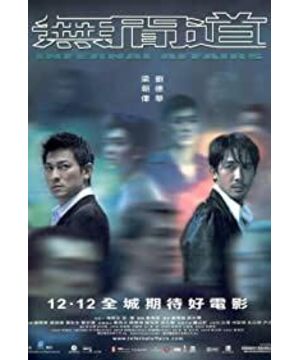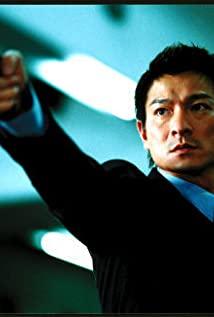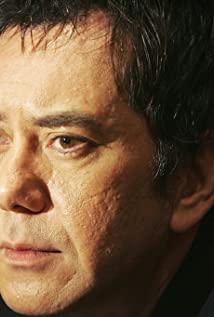Although the film is slightly shrouded in the lingering haze of Hong Kong-style antiquity at the event level, at the narrative level, Liu Weiqiang obviously does not simply intend to touch the story of "undercover" and "police". They all have their own independent dramatic structures that start and turn together. Combining them into one is a post-modern deconstruction innovation. The director has carried out a Tom Tykwer-style reset of the concept of time, and used the multi-faceted and exquisite portrayal of characters. The interspersed stream of consciousness seems to be unintentional, but it is actually intentional.
The following is a detailed analysis of the subtleties of Liu Weiqiang's bold and anti-traditional construction in the scene of "Confrontation on the Rooftop".
The duration of the shots in this segment is quite short, even less than a second, and the use of montage is in Pudovkin's narrative sense. In the composition, the lines are cleverly used to form visual inertia, and Liu and Chen, the main narrative subject, are carefully placed at the center of interest on the screen. Due to the use of a short-throw wide-angle lens, the lines of buildings and Hong Kong's bird's-eye view of the sea are displayed with a distorted trend. Extensive use of the reflection of the building glass, focusing on depicting the double-sided character of the characters, coincides with the theme of the film. However, in the performance of close-up or close-up scenes, a small depth of field composition is used to highlight the subject. The camera constantly pans to simulate the subjective gaze of the character. The scenes after Chen's appearance still use quick scene changes. First, they explain the environment from the perspective of an objective narrator, and second, they closely describe the urgent atmosphere of the confrontation between the two. An empty shot showing floating clouds was cut into it, and it was obviously shot with a downgrade. Such a shot with a typical fate reflects the erratic fate of the protagonist.
If the above techniques are not enough to cover Liu Weiqiang's narrative ambition, the subsequent "elevator fight" is an obvious "offside". First of all, the use of the achromatic system at this time is not a flashback symbol attribute, but is embedded in the lifeline connection of the human subject. The director does not hesitate to destroy the solemnity of time, combined with the sudden change of saturation, constantly repeating on the time axis , intended to follow the essence of Eisenstein's pictorial montage. The soothing and light piano music after the black field fully demonstrates the ultimate meaning of "Infinity" - people who walk here must have superhuman abilities, because they are immortal, and in fact, are likely to live Better to die. The identification of death in the achromatic system may also contain another antinomy - the living mourn, the dead happy. This is the director's sober question about identity identification to the audience.
View more about Infernal Affairs reviews











